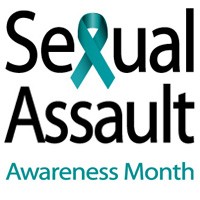 By Kayla Samek—There are many subjects no one wants to discuss. But, on a college campus, an important topic is sexual assault. It happens on every campus, even Morningside. April is Sexual Assault Awareness Month and it focuses the conversation on a year-round issue.
By Kayla Samek—There are many subjects no one wants to discuss. But, on a college campus, an important topic is sexual assault. It happens on every campus, even Morningside. April is Sexual Assault Awareness Month and it focuses the conversation on a year-round issue.
Unfortunately, one in five women will experience some form of sexual assault in college. There have been several Morningside organizations that have sponsored events on campus to help educate students. On Wednesday, April 20, AOPi (Alpha Omnicron Pi), UPA (Undergraduate Psychological Association), and Gender Undone screened the movie Private Violence and held a panel discussion with members of the community that help victims of sexual and dating violence.
One victim, who wished to remain anonymous, gave her thoughts on Sexual Assault Awareness Month.
“I hope what happened to me doesn’t happen to anyone else. But it does. I felt like it was my fault for what happened for the longest time—he was my friend,” she said. “But having a month dedicated to bringing awareness to the issue could help other victims come to terms with their assault, and get help.”
It can happen to males and females. It is not shameful to be a victim, and Morningside offers many ways to help the victim. Bobbi Meister is the campus counselor. Provost Bill Deeds is the campus Title IX representative.
RAs and HRs have training to help victims, and campus security is available 24/7 to respond to calls. Former RA and Student Government President Paul Johnson explained some of the training he received in case of an instant of sexual assault.
“Focus on the victim, but also let the person know their options,” said Johnson. “It’s ultimately up to them what they want to do.”
Sexual assault is more than being ambushed when you’re walking home alone. It can be someone touching you in a way that you do not want, unwanted attention or comments, or being coerced into sex or sexual activities. Strangers are not the only culprits. More sexual assaults are committed by people the victim knew and thought they trusted.
The key aspect of sexual assault is consent. Consent comes in many different forms, so it is best to ask for clarification if one is not sure, and to be clear if something is happening that you do not like as soon as it happens.
There is a chance of you knowing a victim. Bobbi Meister, LISW, says the best that you can do for a victim of sexual assault is support them.
“A friend can help by first listening and validating that person’s experience,” said Meister. “Do not question whether or not their story is true, complete, etc. Believe them!”
There are also off-campus resources like the Council on Sexual Assault and Domestic Violence (CSADV).
It’s important to stop sexual assault if you see it, or even help diminish the stigma around. In cases of witnessing actual assault, know how to CARE. Little things like not making rape jokes, taking someone who’s had too much to drink home, and looking out for friends in social situations can help prevent sexual assault and violence.
Even though the month is almost over, sexual assault should be discussed openly, especially when it happens but even when it does not. Keeping the conversation going all year is the best way to prevent violence.
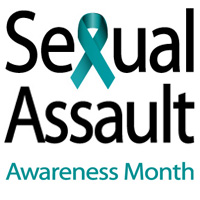


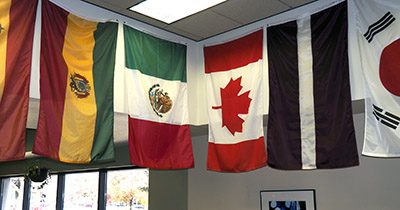

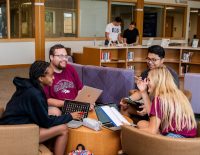
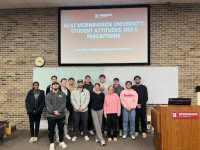


Leave a Reply